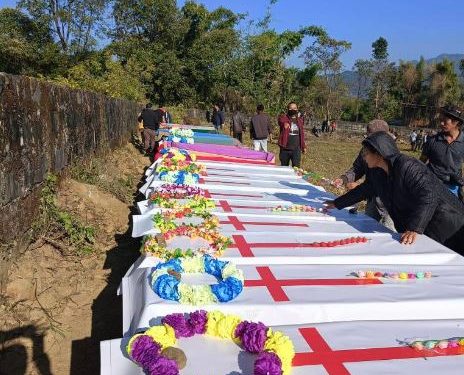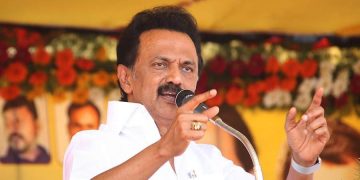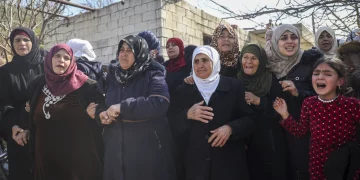Imphal: A total of 64 bodies of victims from the Kuki and Meitei communities, lying in morgues of Manipur since ethnic clashes broke out in the state in May, were handed over to their family members under tight security, officials said here Thursday.
The bodies of 60 members of the Kuki community, which were kept in the JNIMS and RIMS hospitals here, were airlifted amid tight security arrangements put in place by the Manipur Police and the Army’s Assam Rifles unit.
Four bodies of Meiteis that were lying at a morgue in Churachandpur, a district dominated by tribals, were also brought to Imphal and handed over to their next of kin for the last rites, the officials said.
The Supreme Court formed a committee in August of three former high court judges — Justices Gita Mittal, Shalini Joshi and Asha Menon — to look into the investigation, relief, remedial measures, compensation and rehabilitation in violence-stricken Manipur.
Subsequently, on the committee’s report, the apex court issued directives for the burial or cremation of those killed in the ethnic violence in the northeastern state, including the 88 people who were identified but their bodies not claimed by their family members, by December 11.
“Either the relatives of the deceased can accept the bodies and perform the last rites at any of the nine burial sites identified by the Manipur government or the state can go ahead and do the same in accordance with municipal laws,” the court had ordered.
Twenty-four more bodies, believed to be of Kukis, were at the Churachandpur morgue. The tribals had refused to bury those until the bodies from Imphal were brought.
“We are expecting that these bodies would also be claimed and the last rites performed,” an official said.
According to the report, 175 deaths were reported during the ethnic clashes and 169 bodies identified. The top court noted that of the 169 identified bodies, only 81 were claimed by the relatives of the victims.
The committee report had said 94 unclaimed bodies were being preserved in mortuaries maintained by state authorities and added that preserving a large number of bodies for a long period is a drain on the state’s exchequer and a failure to perform the last rites would amount to showing disrespect to the dead.
The apex court had also agreed that it would not be either appropriate or proper to keep the bodies that have not been identified or claimed indefinitely in the mortuaries and said “we do not want to keep the pot boiling on dead bodies”.
For the unidentified bodies, the court had allowed the state to carry out burial or cremation with due observance of religious rites.
More than 170 people lost their lives and several hundred were injured since the ethnic clashes broke out in Manipur May 3, after a “Tribal Solidarity March” was organised in the hill districts of the state to protest against the Meitei community’s demand for Scheduled Tribe (ST) status.
Meiteis account for about 53 per cent of Manipur’s population and live mostly in the Imphal valley. Tribals — Nagas and Kukis — constitute little more than 40 per cent and reside in the hill districts.
PTI






































